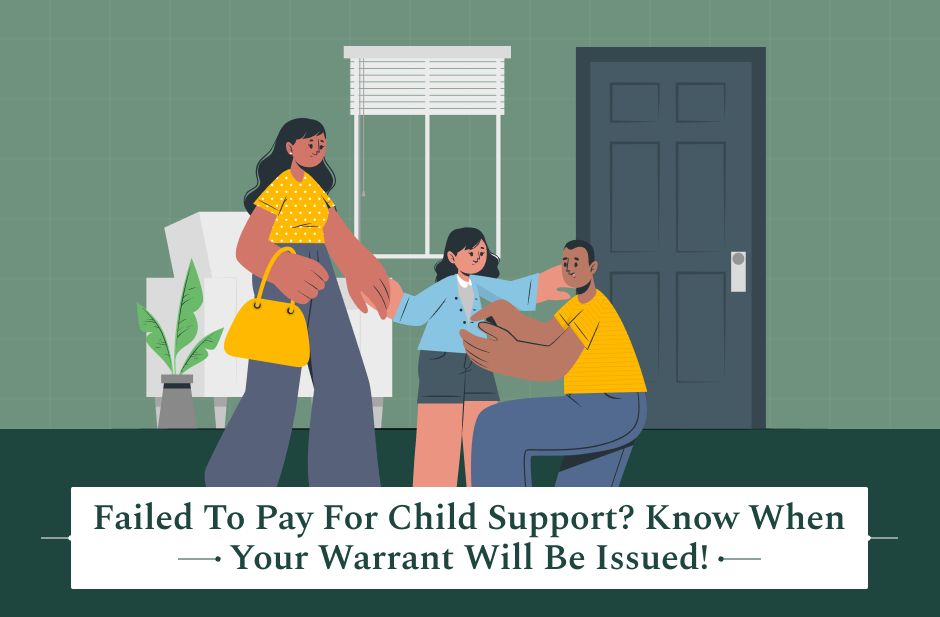In the complex landscape of family law, the well-being of children is of paramount concern. Divorce, separation, and custody disputes can significantly impact the lives of the children involved, often leaving them vulnerable to emotional distress and instability. In this context, parenting coordination emerges as a valuable tool to safeguard the interests of children. By facilitating communication, reducing conflict, and ensuring a supportive environment, parenting coordination can play a pivotal role in shaping positive outcomes for children during challenging family transitions.
Parenting coordination is a specialized process within family law designed to assist separated or divorced parents in resolving disputes and creating a more harmonious co-parenting environment. This article delves into the world of parenting coordination, exploring its benefits for children, understanding how it works, and highlighting its potential to transform family dynamics.
Understanding Parenting Coordination

Definition And Purpose
Parenting coordination is a method that concentrates on solving problems between parents who often argue about their kids. A specialized coordinator helps these parents make choices that are good for their children.
They work on issues like where the kids will live, when each parent can see them, their schooling, and other important things about their well-being.
This process is meant to make sure the decisions are best for the kids and help parents in high-conflict situations settle their differences.
Best Interest of the Child
All decisions made by parenting coordinators must prioritize the well-being and safety of the children involved.
Parental Dispute Resolution
Parenting coordination helps parents resolve disagreements about child-related matters outside the courtroom.
State Laws Vary
Laws about parenting coordination differ from state to state in the U.S. Each state might have its own rules and guidelines.
Confidentiality
Information shared during parenting coordination meetings is usually confidential and cannot be used in court.
Neutral Third Party
Parenting coordinators are neutral and impartial, aiming to help parents reach agreements that benefit the children.
Enforcement of Agreements
Parenting coordinators don’t have the power to enforce decisions but can assist in creating parenting plans.
Legal Framework
Some states have specific laws or guidelines outlining the roles and responsibilities of parenting coordinators.
Voluntary Participation
In many cases, participation in parenting coordination is voluntary and requires both parents’ agreement.
Remember, these laws can vary, so it’s important to check the specific regulations in your state if you’re involved in a parenting coordination process.
How Parenting Coordination Works
Parenting coordination typically starts with an initial assessment of the family’s needs and issues. If you’re considering parenting coordination, it’s advisable to have questions to ask a family lawyer who can provide guidance on its suitability for your situation. The parenting coordinator then works with the parents to establish clear goals and guidelines for co-parenting. They facilitate communication between parents, helping them reach agreements and make decisions that prioritize the well-being of their children. The process can involve regular meetings and check-ins to monitor progress and address emerging conflicts.
Who Can Benefit From Parenting Coordination?
Parenting coordination is particularly beneficial for families experiencing ongoing conflicts related to co-parenting. It can be a valuable resource for parents who struggle to communicate effectively, have difficulty making joint decisions, or frequently find themselves in disputes that affect their children. While it may not be necessary for all families, it can be a crucial intervention for those in high-conflict situations where the welfare of children is at risk.
The Benefits Of Parenting Coordination For Children

Ensuring A Stable And Supportive Environment
One of the primary benefits of parenting coordination is the emphasis it places on creating a stable and supportive environment for children. When parents engage in frequent conflicts or disagreements, it can lead to a highly stressful and uncertain atmosphere for their children. Parenting coordinators help establish consistent routines and guidelines, reducing the disruptions children may face during and after a divorce or separation. This stability is crucial for a child’s emotional well-being and sense of security.
Reducing Conflict And Emotional Distress
Parental conflict can take a toll on children, leading to emotional distress and long-term psychological effects. By providing a structured and constructive platform for dispute resolution, parenting coordination aims to minimize conflict between parents. This reduction in conflict not only benefits the parents but, more importantly, shields children from being caught in the crossfire of their parents’ disputes. It helps create a more peaceful and emotionally stable environment where children can thrive.
Enhancing Co-Parenting Skills
Parenting coordination goes beyond conflict resolution; it also focuses on enhancing the co-parenting skills of both parents. Through the guidance of a coordinator, parents can learn effective communication strategies, negotiation techniques, and ways to collaborate for the well-being of their children. These improved co-parenting skills extend beyond the duration of the coordination process, allowing parents to better navigate their co-parenting journey independently.
Facilitating Communication And Decision-Making
Effective communication and joint decision-making are essential components of successful co-parenting. Parenting coordination assists parents in developing these critical skills. It encourages open and constructive dialogue between parents, ensuring that they can discuss important matters related to their children’s upbringing and reach agreements that prioritize their children’s best interests. This collaborative approach benefits children by creating a more unified parenting front.
Assessing Suitability For Parenting Coordination
Complex Family Dynamics
Parenting coordination helps when parents fight a lot over their kids after a divorce. This article talks about why this kind of help works well. It says that by using special methods, it can help parents who always argue to make plans for their kids without fighting. This way, they can both take care of their kids without causing trouble for each other. It also mentions how this help can make sure parents talk about their kids’ stuff without getting mad and handle things outside the family.
Parenting coordination may not be suitable for every family situation. Families with deep-rooted conflicts, complex dynamics, or a history of abuse may require specialized attention and interventions beyond the scope of parenting coordination.
In such cases, it’s crucial to assess whether the process can effectively address these underlying issues or if additional support, such as individual or family therapy, is needed to ensure the safety and well-being of all involved parties.
Coordinator Qualifications And Approach
Choosing a qualified and experienced parenting coordinator is paramount to the success of the process. When considering potential coordinators, it’s essential to thoroughly evaluate their qualifications, including their education, training, and experience in family law and conflict resolution. Additionally, take the time to understand their approach to parenting coordination. Different coordinators may have varying philosophies and methods, so ensure that their approach aligns with the values and needs of your family.
Impartiality And Conflict Resolution Skills
Impartiality is a cornerstone of effective parenting coordination. The coordinator must remain neutral and unbiased throughout the process, ensuring that neither parent feels disadvantaged or unheard. Assess the coordinator’s ability to maintain impartiality and avoid taking sides. Additionally, consider their conflict resolution skills. A skilled coordinator should be proficient in facilitating productive discussions, mediating disagreements, and helping parents arrive at mutually acceptable solutions. Their capacity to handle conflicts effectively can significantly influence the success of parenting coordination.
Conclusion
Parenting coordination is a powerful tool within the realm of family law that focuses on the well-being of children amidst challenging circumstances. By ensuring a stable and supportive environment, reducing conflict and emotional distress, enhancing co-parenting skills, and facilitating communication and decision-making, parenting coordination provides a range of benefits for children. It helps create a nurturing atmosphere in which children can thrive and develop, even in the midst of parental separation or divorce.
As we navigate the complexities of family law, it’s crucial to recognize the evolving role of parenting coordination. This process is not only an effective means of addressing disputes but also a proactive approach to protecting the interests of children. By promoting cooperation, reducing litigation, and prioritizing the child’s welfare, parenting coordination has the potential to shape the future of family law practices. It encourages a shift towards more child-centric solutions and emphasizes the importance of creating stable and supportive co-parenting environments.
In closing, parenting coordination offers a ray of hope for families navigating the challenging waters of divorce or separation. Its benefits extend beyond the legal arena, fostering healthier relationships between parents and, most importantly, ensuring that children receive the care, support, and stability they need to thrive. As we move forward in addressing family disputes, it is essential to encourage the consideration of parenting coordination as a valuable resource for the well-being of children, promoting their emotional and psychological health even in times of transition and change.
Read More:
















